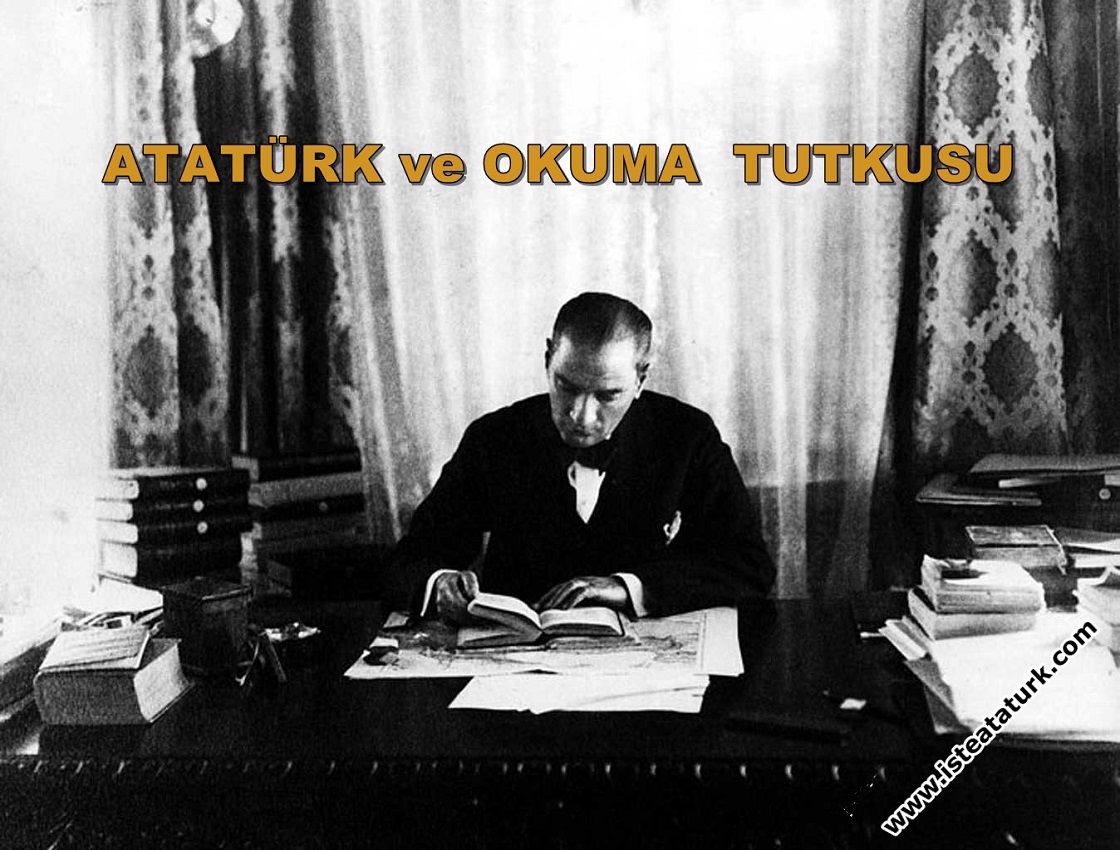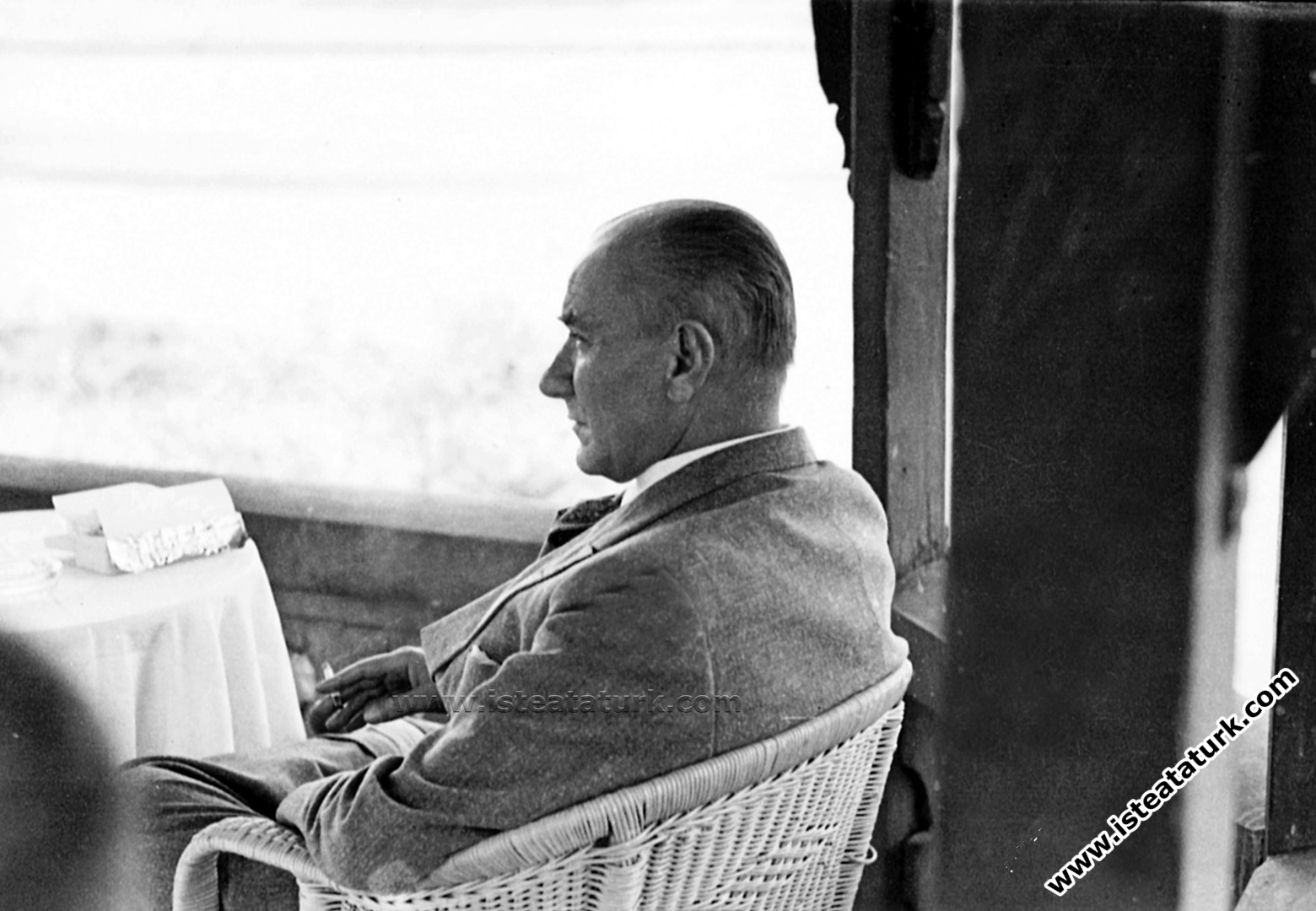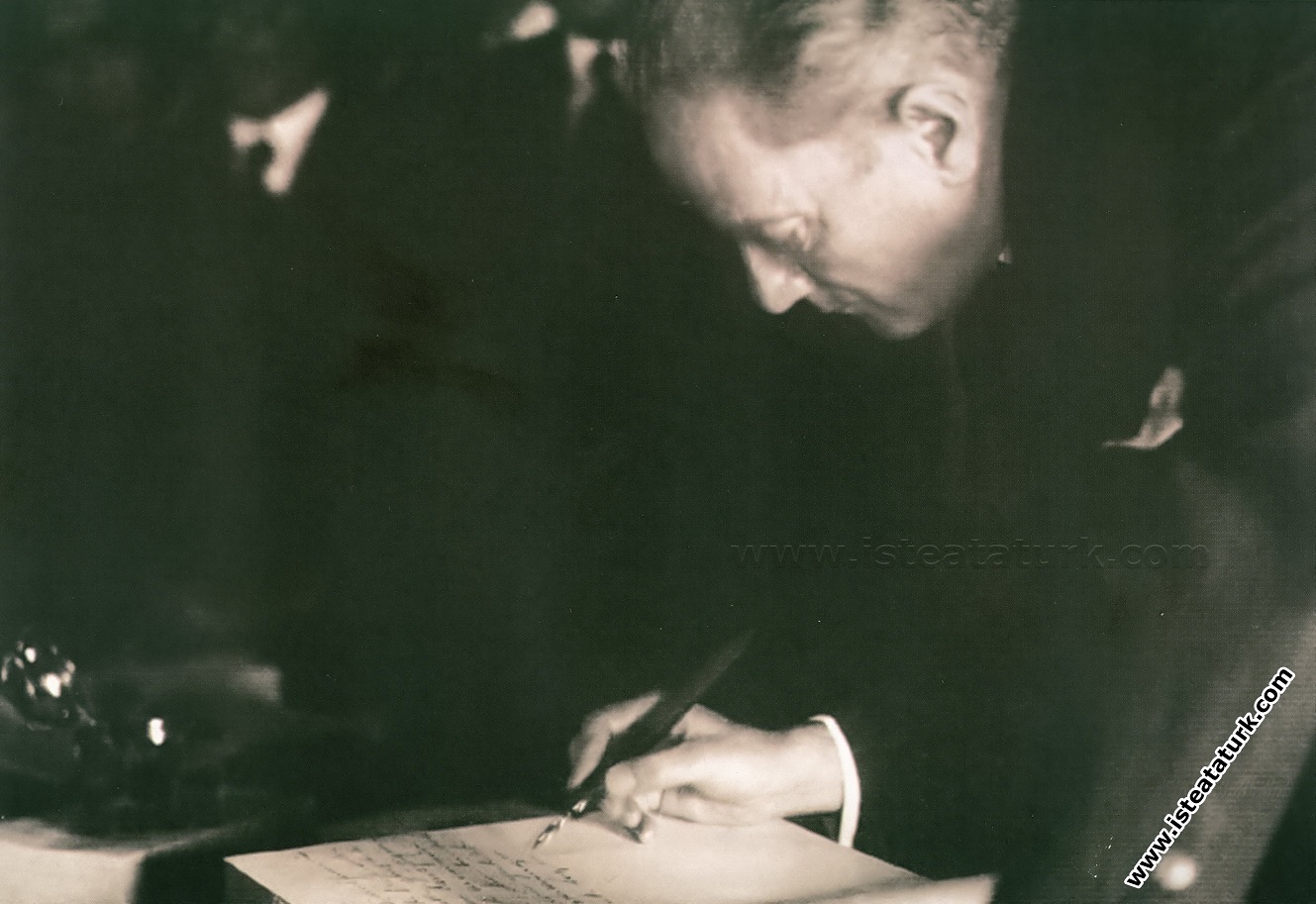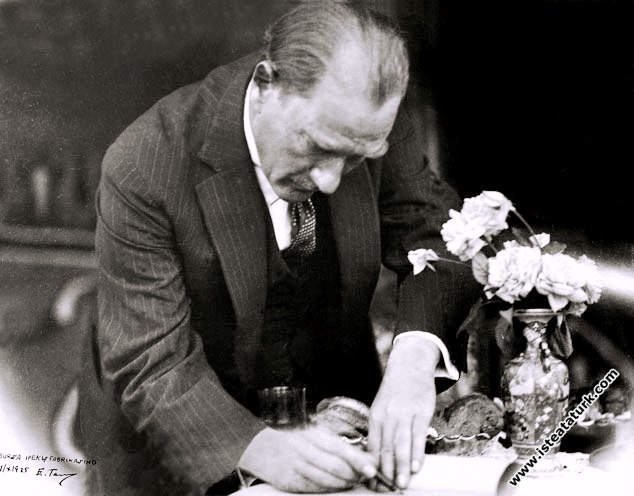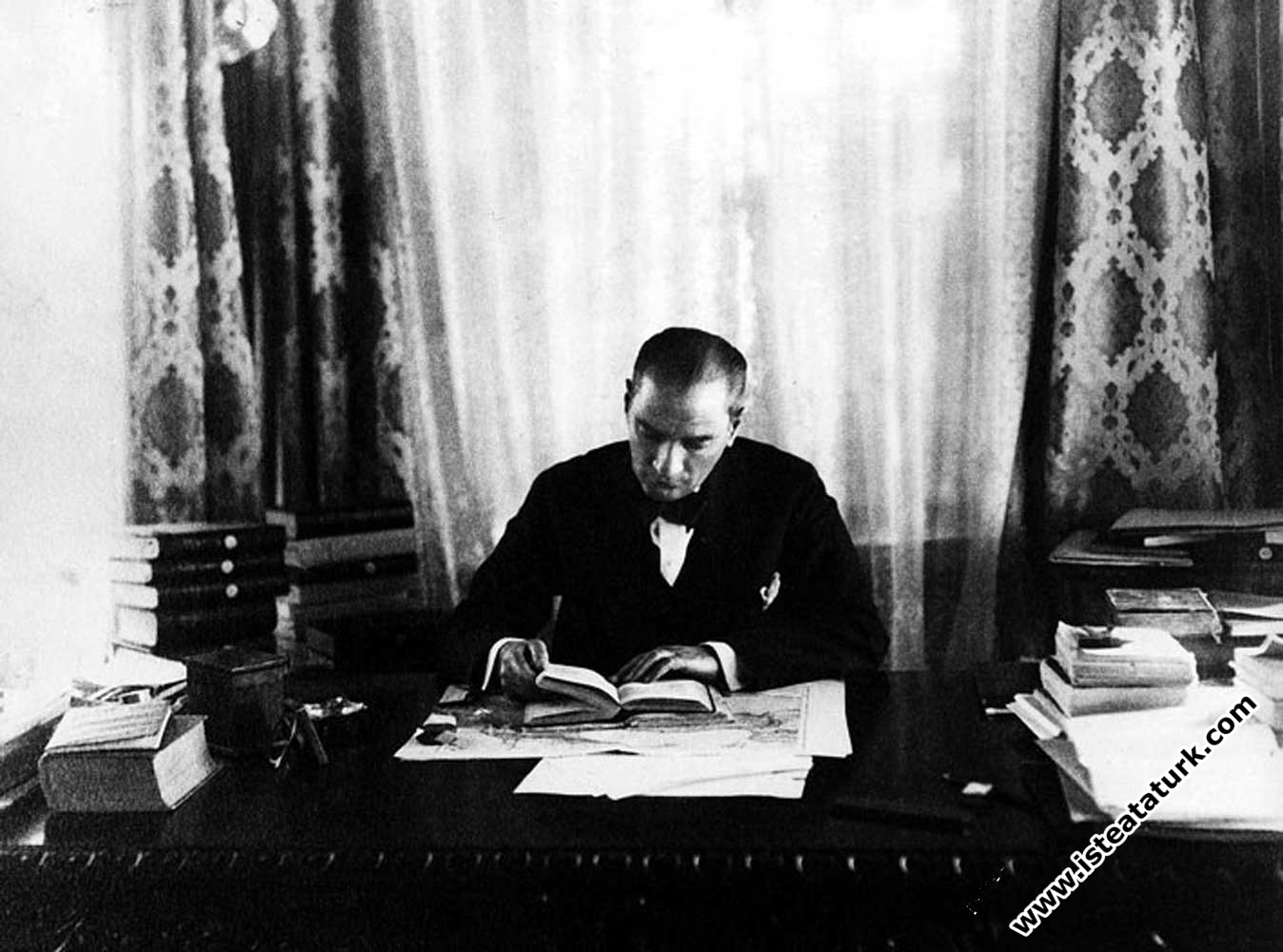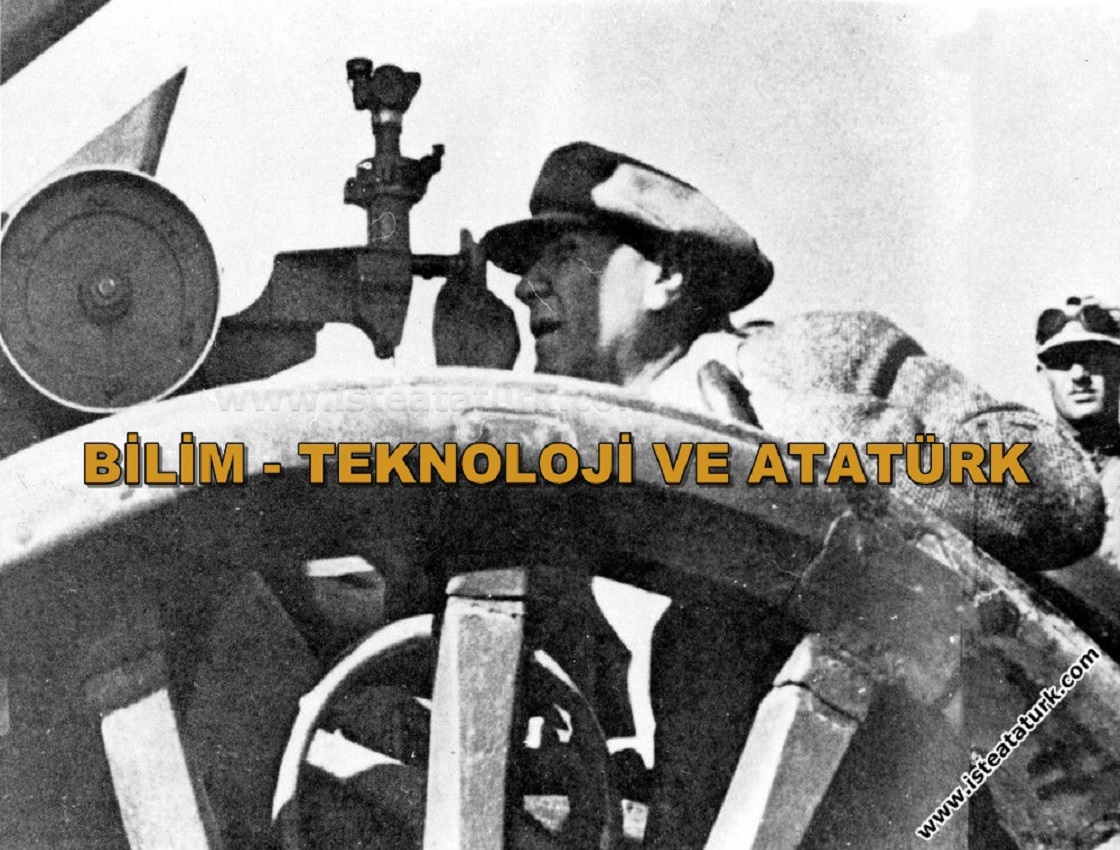
Science Technology and Atatürk
Character Size
Science Technology and Atatürk
SCIENCE-TECHNOLOGY AND ATATÜRK
The level of development of a country is closely related to the scientific and technical development that the country has and can use. The source of technical developments is scientific developments. Technical inventions are by no means accidental. The view that economic development and development can occur after scientific development gives birth to technical development is a common opinion in scientific circles.
Science, to a large extent, is an intellectual culture, that is, a field of reflection that is based on sound and reliable knowledge, objective thinking, and is common to all people, and is the product of the common mental efforts of people who are interested in such matters1.
Scientific progress, the development of scientific knowledge, in general, does not happen randomly. The development process in scientific knowledge and the successive steps in this process depend on the nature and structure of each special subject or field, and the nature of the logical ties that are valid within the new emerging knowledge. Thanks to science, human beings can create changes in their daily lives. Science is a factor that brings vitality and mobility to the static structures of societies.
Technique, on the other hand, is a powerful factor that can make its effects on human societies and individuals often direct, that is, without going through detours. Science-based technology is a type of human endeavor of extraordinary importance in human life. Technology gains mobility to the extent that it is based on science2.
While examining the subject, the state of science in the last period of the Ottoman Empire, in the transition period to the Republic of Turkey, was primarily discussed. Then, Atatürk's approach to science and technology was examined.
1- Science and Technology in the Period of Stagnation and Collapse of the Ottoman Empire
While scientific studies in the fifteenth, sixteenth and seventeenth centuries brought Europe to the "enlightenment period" in the eighteenth century, the opposite was observed in the Ottoman Empire in the same centuries. Starting from the seventeenth century, the gap or gap that started to emerge between the Ottoman Empire and Europe in terms of science and technology has gradually deepened. Although this difference made itself felt in the seventeenth century, it was accepted by the state from the eighteenth century and the first steps were taken for some innovation movements3.
The following event, which took place in the Ottoman Empire against the West, which entered the age of reason, is quite interesting: A hendesehane was opened with the request of Admiralty Admiral Hasan Pasha and the initiative of Baron de Todd. When Baron de Todd asked some of the carpenters who opposed the opening of this institution, what is the sum of the interior angles of a triangle, only one of them was able to answer, and he replied that "it depends on the triangle".
Ottoman histories write that we lost the war with the Austrians at the beginning of the 18th century as a result of the Vizier-i Azam Damat Ali Pasha's consultation with his astrologers and that a astrologer was punished for making wrong calculations.
Even the anatomy classes in the medical school opened during the reign of Mahmud II were interfered with, and the sheikh al-Islam of the period did not allow the use of Muslim corpses.
The nineteenth century constituted a time period in which important changes were observed both in Europe and in the Ottoman Empire in many respects. In this century, with the effect of the French Revolution that took place in the eighteenth century, besides the intellectual movements seen in European countries, the period of rapid developments in the technical field began with the application of studies in various branches of science to technique. The developments in the technical field have affected scientific studies, accelerated scientific studies and gained more detail, and led to the establishment of new branches of science4.
In the same period, the innovation movements started in the eighteenth century in the Ottoman Empire were also continued. These movements did not change the fate of the country as in Europe. Various schools were opened, but these schools were not as productive as desired and expected. One of the most important reasons why these schools were not successful was undoubtedly the political instability seen in that period, namely in the eighteenth and especially in the nineteenth century5.
2- Atatürk's View of Science and Technique
In Atatürk's ideology, the necessity of placing human thought and activities in a rational direction and on a pure science base emerges as a basic principle, a main element of culture. In his words on this subject, Atatürk emphasizes the natural sciences such as physics and chemistry, that is, the science branches of science, which can lead civilization to dazzling and extraordinary transformations. However, it is clearly seen that the sciences that examine people and human societies also fall within the scope of Atatürk's words.
Expressing that with the end of the War of Independence, the future will be provided by scientific studies, Atatürk said the following in 1923:
“Friends, after this, we will have very important victories. However, these victories will be economic and scientific victories, not with bayonets. The victories that our armies have achieved so far cannot be considered to have led our country to the true peace. These victories have only prepared a valuable ground for our future victories. Let's get ready for these new victories in science and economy, to be proud with our military victory.”6
As can be seen, while the Turkish State was being established, scientific victories were prioritized.
While stating the importance he attached to science and education, Atatürk said, “If I were not the President of the Republic, I would like to be a deputy of education”7, he applied for the guidance of science in all his activities.
Indeed, the manpower inherited from the Ottoman Empire was generally unqualified to meet the needs, and was also unprepared in terms of ideas and actions. It was considered impossible to train workers and technical experts, scientists and intellectuals who are the builders of the future, and to engage in development efforts by organizing within the framework of the conditions.
For example, there were almost no schools, universities, teachers, professors, engineers, foremen, drivers, mechanics.8
In the Kemalist system, developments have to be open. It has been accepted that science will arbitrate in which directions, which developments will be made, and according to which criteria these foreseen developments will be determined. Being advanced in science and technology has been seen as the main condition for being successful in any struggle. It has been clearly demonstrated that science will be the most real guide in the direction and characteristics, quality and quantity of the mobility in the Kemalist system. On August 30, 1924, Atatürk expressed how scientific changes affect societies and that the Turkish nation cannot survive without adapting to the change:
“Sir, success on the path of civilization depends on renewal. This is the only way of evolution and progress in order to be successful in social life, economic life, science and science. In an era when the inventions of civilization and the wonders of science are leading the world to change without changing, it is not possible to preserve existence with age-old outdated mentalities and stigma”9.
Atatürk's thought on the role science will play in Turkey's future development was reflected in his following words in his Tenth Year Speech.
“I have no doubt that the forgotten great civilized qualities and great civilized abilities of Turkishness will rise like a new sun on the high civilizational horizon of horse, with its further development.”
“The torch that the Turkish nation holds in their hands and in their minds on the path of progress and civilization that they are walking on is positive science.”
“We will raise our country to the level of the most prosperous and civilized nations of the world, and we will make our nation have the most extensive means and resources of welfare. We will raise our national culture above the contemporary level of civilization." The basic rule and aim in Atatürk's philosophy is to be contemporary. The way to this is through science and technique. While expressing this, he was saying, "The most real guide for everything in the world, for civilization, for life, for success, is science and technique"10.
In his Great Speech, Atatürk stated that science and technique were taken as the basic principle in the establishment of the Republic of Turkey, and also stated that "Science and science will be our guide in the political and social life of our nation and in the training of ideas of our nation" and also other fields in which science and technology will be used. has shown.
It is also necessary to consider Atatürk's principle of revolutionism within this framework. The principle of revolutionism in the Kemalist system is a very important principle that seeks to ensure that the Turkish society is a society that is at the forefront in international competition and in the efforts of human beings to establish and develop civilization, and to seek the ways of providing happiness and peace for the members of this society. In a modern society, in an advanced civilization, it is necessary to walk in the light of science in meeting human needs, both at the stage of diagnosis and prevention.
It is an obvious fact that science is a very important human endeavor that can make people extraordinarily powerful. A person can use this increased power for good and constructive purposes, as well as have the opportunity to benefit from this power for negative and destructive purposes. Science itself is morally neutral and neutral. In order for science to be used in the best way for the benefit of people and society, it must have some virtues. The basic principles in the Kemalist system can be greatly beneficial by keeping this virtuous environment in a favorable way. Thus, it will be easier to open the ways to make the best use of the blessings provided by science to human beings.
The most obvious sign of Atatürk's importance to education and science was proved when he convened the Education Congress while the National Struggle was still going on. At this congress, which was gathered in Ankara on July 15, 1921, that is, at the most angry times of the Sakarya War, Atatürk said the following:
“We must work to bring into being a national education program that has been carefully and carefully worked out even in times of war, and to explain the principles that will make our current educational organization work usefully today.”11
After the war of independence that lasted for more than three years, Atatürk wanted scientific research to increase in the country and people should always devote their minds to these kinds of occupations. “After three and a half years of struggle, we will continue our struggle in terms of science and education. We will be manufacturers, we will be artists. From now on, let's always give our understanding to this.”
In another speech he made in 1922, he said, “Science and technique will be our guide in our nation's political and social life and in our nation's education of thought. We cannot close our eyes and pretend that we are living alone. We cannot enclose our country in a circle and live indifferent to the world. We will take science and technology from wherever it is and put it in everyone's head. There is no registration or condition for science and technique.” 12
Since the science and technique that Atatürk meant were contemporary, developments in science and technique in Kemalism should be followed very closely. The civilized world is rapidly changing and developing. It is necessary to comply with these changes and developments. Acknowledging that success on the path to civilization is possible with development, Atatürk said, “It is imperative that the rules that dominate life and livelihood change, develop and renew with time.” 13
According to Atatürk, the path of civilization, which is free from ignorance and bigotry, and based on science and rationality, is an obligatory path for societies. Because: “Civilization is such a strong fire that it burns and destroys those who are indifferent to it. Uncivilized people and societies will always be doomed to be under the feet of the civilized.
The adoption of Law No. 2252 on May 31, 1933, which included high schools, was an important step in the development of science in Turkey during the Atatürk period. In accordance with this law, the old Istanbul University was closed on 31 June 1933, and a modern university was planned to be opened in its place on 1 August 1933, in line with the western European model. This university was followed by the opening or modernization of many new schools or departments in Turkey. For example, the Department of Architecture in Istanbul Technical School, the Agriculture and Veterinary School in Ankara, the State Conservatory and some other schools can be counted15.
The university revolution carried out by Atatürk primarily envisaged that our universities should keep up with the research traditions in line with western examples in the fields of both natural sciences and humanities. In the fields of history and language, Atatürk strongly supported this movement, which he wanted to revive, by establishing the History and Language Institutions. In addition, it is essential to increase the number of departments, institutes and departments represented at Istanbul University, to increase their scientific level, and to enrich the university in terms of libraries, laboratories and other research tools and equipment16.
CONCLUSION
The point of agreement of every researcher and intellectual who correctly evaluates Atatürk's thoughts is to determine that he attaches great importance to rationality and science in all his ideas and practices. Atatürk, who aims to bring the Turkish nation to the most advanced point on the path of modern civilization, stated that it is necessary to act realistically in order to realize this ideal. His realism was an integral part of his rationality. In his speeches in his first years, it is understood that he focused on ignorance, education, national education, science and teachers, and aimed to attract the attention of teachers, officials and the public in order to make them understand their great and effective importance and value. Because, 13 years before he had decision and authority in Turkish society,
The basic quality of the new Western civilization, which Atatürk wanted to direct the Turkish society to, was determined as enlightenment, saying that "the most real guiding science in life". Enlightenment means that the mind guides life, the values and norms that will be the basis of life are found with the mind, and the traditions and customs are criticized by the mind. The most valuable product of this attitude is science, which is obtained through systematic and planned observations of reality. Therefore, science will show the right way to life.18
Civilization is one of its most important principles. He always talked about science and civilization and showed ways to rise to that level and benefit from them. This is the only way to work in a secular understanding and order, without stopping, without giving up and without turning back. The Turkish, praise-work-trust advice is the motto of this and Kemalists.
The statement “The truest guide in life is science, science” has ensured that these principles are attributed to the Turkish nation and that the philosophical basis of Kemalism is definitely revealed. Most of his speeches include the following expressions: “Turkey, the cult of civilization, cannot be a country of sheiks and dervishes. The most correct and true cult is the cult of civilization.” We draw strength from civilization, science and technology. We are in the civilization family. We will apply all the requirements of civilization.
The sincerity and determination in Atatürk's words are indisputable proofs of his firm belief in science and civilization, and are the foundations of his practices.19
Atatürk, who removed all the obstacles that prevented Turkey from becoming a modern state, clearly stated that it was the only way of salvation to enter the age of reason and science, and he correctly identified the problems that emerged in this regard and enabled significant progress to be made in the way of solving the problems with effective practices. Atatürk, by putting science, reason, objective thinking and especially the lessons to be learned from history, led the Turkish nation to a great change in a short time, was able to include many reforms in its program of action, and achieved this great success before the eyes of the world full of astonishment.
1 Aydın Sayılı, “Science and Intellectual Culture and Technology, One of the Basic Elements of Atatürk and our National Culture”. General Views on Our National Cultural Elements, Ankara, 1990, p.80.
2 Aydın Sayılı, supra, p. 17.
3 Esin Kahya, “Science in the Ottomans with General Lines in the Eighteenth and Nineteenth Centuries”, Erdem, Issue 3, p.491.
4 Esin Kahya, supra, p.499
5 Esin Kahya, supra, p.505.
6 Akil Aksan, Ataturk Says, Ankara, 1981, p.74.
7 Akil Aksan, ibid. p.69.
8 Cihat Akçakayalıoğlu, Atatürk, Commander, Revolutionist and Statesman, Ankara, 1988, p.669.
9 Atatürk's Speeches and Statements II, Ankara, 1981, p. 181.
10 Your High Country. “Atatürk's Education-Science and Technical Understanding”. Journal of Atatürk Research Center, Issue: 12, July 1988, pp, 551-552.
11 Bülent Daver, “Atatürk and His Socio-Political System View”, (Atatürk in the Light of Contemporary Thought. Dr. Nejat F. Eczacıbaşı Foundation Published). Istanbul, 1986, p.272.
12 Yüksel Ülken, supra, p.554.
13 İsmet Giritli, Kemalism Ideology, Ankara 1988, p.43.
14 Ismet Giritli, ibid, p.44
15 Klaus-Detlev Grothusen, “The Migration of German Scientists to Turkey After 1933-German-Turkish Relations in the Era of Kemal Atatürk-Belleten, C.XLV/2, October, 1981, Issue: 180, separate edition, p.539.
16 Aydın Sayılı, “Atatürk Science and University” Belleten, C, XLV, Issue: 177 (January 1981), separate edition, Ankara, 1981, p.15.
17 M. Rauf Inan, “Education and Kemalism (Ataturkism)”, Ataturk Revolutions, Proceedings of the I. International Symposium (10-14 December 1973, Istanbul), Istanbul, 1975. p.447.
18 Macit Gökberk, “Enlightenment Philosophy, Revolutions and Atatürk”, (Atatürk in the Light of Thought in the Age, Dr. Nejat F. Eczacıbaşı Foundation Publications), Istanbul, 1986, pp.303-304.
19 Cihat Akçakayalıoğlu, Atatürk's Commander, Revolutionist and Statesman Aspects, Ankara 1982, (General Staff), p. 626-627.
Assoc. Dr. Mustafa Gül
Source: ATATÜRK ARAŞTIRMA MERKEZİ DERGİSİ, Sayı 39, Cilt: XIII, Kasım 1997
